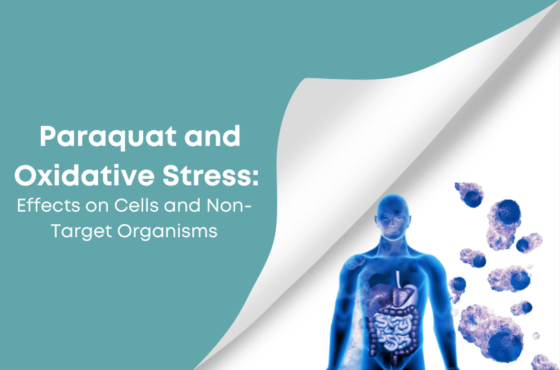Paraquat exposure occurs when individuals have contact with the herbicide paraquat through skin absorption, inhalation, or ingestion. Farmers and agricultural workers have the highest risk of being exposed to paraquat, as they work closely with the toxic chemical as part of their job.
However, recent studies have revealed that even residents who live near farms where paraquat is sprayed are also at risk of its health effects. The dangers of paraquat to animals, humans, and even the environment have prompted thousands of individuals to file a paraquat exposure lawsuit against manufacturer Syngenta, claiming that the chemical company failed to warn them about the health risks of paraquat, particularly Parkinson’s disease.
Some scientists believe that paraquat exposure can lead to the development of Parkinson’s disease. The symptoms of paraquat exposure include nausea, stomach pain, burning pain and swelling of the mouth and throat, seizures, muscle weakness, confusion, and respiratory failure that can lead to death.
Who is exposed to paraquat?
The effects of paraquat exposure are not limited to those who work closely with the chemical. The list of people who can possibly be exposed to paraquat are listed below.
- Applicators, mixers, and loaders: In 2019, the Environmental Protection Agency (EPA) required that all mixers, loaders, and applicators of paraquat-containing products obtain proper pesticide applicator certifications before using the chemical. Licensed applicators of paraquat are the individuals most at risk of exposure to the weed killer. These can include those who use hand-held or backpack sprayers, drivers of tractors used to spray paraquat, crop dusting pilots, and people who mix, load, and apply the herbicide on agricultural and non-agricultural settings.
- Farmworkers: include field crop workers, agricultural inspectors, supervisors, farm managers, and graders and sorters. Ever since pesticide use for crop protection became widespread, many farmworkers have spoken out against it in recent decades due to the negative health effects linked to different pesticides.
- Farm owners: Farm owners who are also licensed pesticide applicators are also often exposed to herbicides like paraquat during storage, mixing, preparation, and application. Evidence exists, however, that farm owners typically struggle to use pesticides safely because of lack of awareness and low risk perception among their population.
- Children and adolescents living in agricultural areas: Pesticides do not only negatively impact those who handle them. In fact, individuals who live near agricultural areas where paraquat is being sprayed are also likely to be exposed to mixtures of these chemicals during their daily activities. This can affect the neurocognitive performance of school children who are engaged in pesticide-exposure related activities, such as eating crops directly from the field and playing or swimming in nearby water.
How do I know if I was exposed to Paraquat?
You can tell if you were exposed to paraquat by checking for its immediate symptoms, such as pain and swelling of the mouth and throat, nausea, stomach pain, vomiting, difficulty breathing, confusion, seizures, and diarrhea that may become bloody.
In case of pesticide exposure, you can check the label of the product for directions on first aid. You may also call the Poison Control Center at (800) 222-1222 for more information on first aid guidelines. It is worth noting that even if you only suspect to have been exposed to other pesticides or if you only want to know more information about what is paraquat, you can still get expert help from Poison Control.
More importantly, seek immediate medical attention if there are signs of emergency, such as seizures, loss of consciousness, and difficulty breathing. When it comes to paraquat poisoning, timely and prompt treatment are crucial in saving a victim’s life.
What are the immediate signs and symptoms of Paraquat exposure?
Some signs that are indicative of paraquat exposure can present immediately, while others may take a few days to several weeks before showing up. The immediate signs and symptoms of paraquat exposure are listed below.
- Nausea: One may immediately experience nausea immediately after being exposed to paraquat. As the chemical goes away from the original point of contact and gets absorbed into and throughout the body, it leads to systemic effects, such as nausea.
- Pain and swelling of the mouth and throat: The mucous membranes of the mouth and throat are very sensitive to chemicals. Therefore, exposure to certain amounts of paraquat may cause reactions in individuals. For instance, a victim’s mouth and throat may feel raw and scratchy during exposure to pesticide sprays, while ingestion of paraquat may cause more severe reactions, such as pain and swelling.
- Abdominal pain: One of the most immediate gastrointestinal symptoms to appear after paraquat exposure is abdominal pain or cramping. This results from injury to the stomach caused by exposure to the toxic chemical.
- Bloody diarrhea: Due to the corrosive effect of paraquat on the mucosal lining, ingestion can lead to gastrointestinal bleeding, which may result in bloody diarrhea.
- Difficulty breathing: The lung is the main target organ for paraquat toxicity. That said, it is not surprising how exposure to any amount of paraquat may cause respiratory symptoms such as coughing, wheezing, and difficulty breathing. Over time, long-term exposure may result in paraquat collecting in the lungs, filling it with fluid, leading to scarring, which makes it increasingly hard to breathe as the condition progresses.
- Seizures: The weed killer is known to produce free radicals that wreak havoc on the nervous system. One of its neurotoxic effects is epileptic seizures, which is an effect that is more commonly seen in animal studies than in humans.
- Confusion: Advanced cases of paraquat ingestion can cause confusion within several hours to several days, as lung injury progresses. Confusion is often accompanied by death in a span of a few days.
What are the long-term health effects of Paraquat exposure?
Paraquat is acutely toxic, and those who survive from poisoning are likely to suffer from chronic health issues. The long-term health effects of paraquat exposure are listed below.
- Parkinson’s disease: The link between paraquat and Parkinson’s disease have been investigated for decades, and studies have suggested a connection between the two. Paraquat causes oxidative stress, a process that damages cells and kills them. When the chemical reaches the region of the brain called substantia nigra, it does the same to the neuron cells that release dopamine. Without healthy levels of dopamine, brain function is impaired, thus leading to Parkinson’s disease.
- Lung scarring: Chronic exposure to paraquat may lead to lung scarring or pulmonary fibrosis, which makes it increasingly difficult for a person to breathe as the disease progresses.
- Reproductive health effects: The popular weed killer can cause reproductive problems both in men and women. While it decreases sperm quality, count, and motility in men, it has been shown to cross the placental barrier and can cause retardation of growth and development in fetuses.
- Genotoxic effects: Paraquat is a harmful chemical that can cause damage to genetic information in cells. Exposure to the toxic weed killer during pregnancy can cause alteration in cells, which can cause diseases in their child, including cancer.
- Depression: Evidence exists that occupational exposure to herbicides such as paraquat is positively associated with depressive symptoms among farmers. The risk of depression also appears to be related to the severity of paraquat poisoning symptoms, type of care received, and number of acute poisonings in the past.
What should I do if I was exposed to Paraquat?
Get medical attention as quickly as possible if you were exposed to paraquat. The Centers for Disease Control and Prevention also recommends that if paraquat gets on your skin, eyes, or clothing, you should take your clothes off without pulling them over your head, thoroughly wash the exposed skin with soap and water, and wash your eyes with clean running water for 10-15 minutes.
After following this first aid treatment to save you from the immediate effects of paraquat exposure, have someone with you to call the Poison Control Center or 911 to seek medical help on your behalf.
Quick identification of paraquat exposure and timely initiation of treatment are crucial in surviving the fatal effects of the toxic weed killer.
Can Paraquat be absorbed through the skin?
Yes, paraquat can be absorbed through the skin. And although pre-existing skin lesions or injuries may result in greater absorption of the chemical, there have also been cases of individuals with healthy skin who suffered from poisoning due to prolonged contact with concentrated solutions of paraquat.
A large percentage of fatalities from dermal exposure are reported in developing countries. Even minimal skin absorption of paraquat can be life-threatening, especially with high concentrations of the substance.
How long does paraquat stay in the body?
Paraquat can stay in the body for more than a month. This is because even though the substance is quickly eliminated by the kidneys in a span of 12 to 24 hours, paraquat also rapidly reaches the lungs once ingested.
It is then distributed in different tissues, mainly the lung, but also in the brain, kidney, liver, bile, and muscle in varying amounts. Paraquat is only released slowly from these tissues, and therefore can take more than a month to be completely released from the body.
How much Paraquat is lethal?
As little as one sip of paraquat is lethal. Or as the US EPA puts it, “one sip can kill” and there is no antidote available to save you. There is no dispute on the toxicity of paraquat – the very reason why experts and advocacy groups alike have been calling for a paraquat ban for many years now.
Death from paraquat poisoning may occur as late as 30 days after ingestion. And although ingestion is the route of exposure that is most likely to result in fatal poisoning, paraquat exposure by skin absorption and inhalation can also be deadly.
What are the treatments for Paraquat poisoning?
The treatments for paraquat poisoning mainly involve the use of Fuller’s earth and activated charcoal to remove paraquat from the system and minimize further absorption. But since there are no widely accepted paraquat poisoning treatment guidelines, other physicians also adopt different methods of treatment, such as the use of N-acetylcysteine (NAC) or other antioxidants for cleansing of the liver and certain medications to reduce symptoms like difficulty breathing and low blood pressure.
Can Paraquat poisoning be reversed?
No, paraquat poisoning cannot be reversed. Paraquat is a toxic chemical with no known antidote or cure. And although early treatment may help someone avoid the long-term health effects of poisoning from paraquat, this is not always the case for everyone.
Oftentimes, damage that has already occurred through paraquat intoxication and its permanent side effects are irreversible. Take, for instance, the neurodegenerative disorder Parkinson’s disease. Plaintiffs who have filed a paraquat lawsuit after developing Parkinson’s from prolonged exposure to paraquat were often diagnosed with the disease several years after working closely with the toxic herbicide.
During which, they have no way of knowing anymore what might have caused them to develop Parkinson’s disease. The condition also gets worse over time, and it does not currently have a cure.
The medical costs of each PD patient may also reach thousands, and it may even be more expensive for those with moderate to severe diseases than those with mild PD. Needless to say, no one deserves to suffer from a debilitating condition that could have been avoided with appropriate warnings about the potential health risks of a product they are using.
If you or your loved one suspects that your Parkinson’s disease diagnosis was caused by paraquat, there is a way to reimburse the money that was lost from you due to the chemical that caused your injuries.
Contact us today, and we will help you find the perfect paraquat lawyer who will explain your available legal options and who will evaluate your unique case to determine if you have a paraquat claim.






